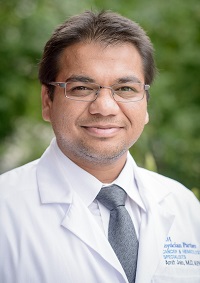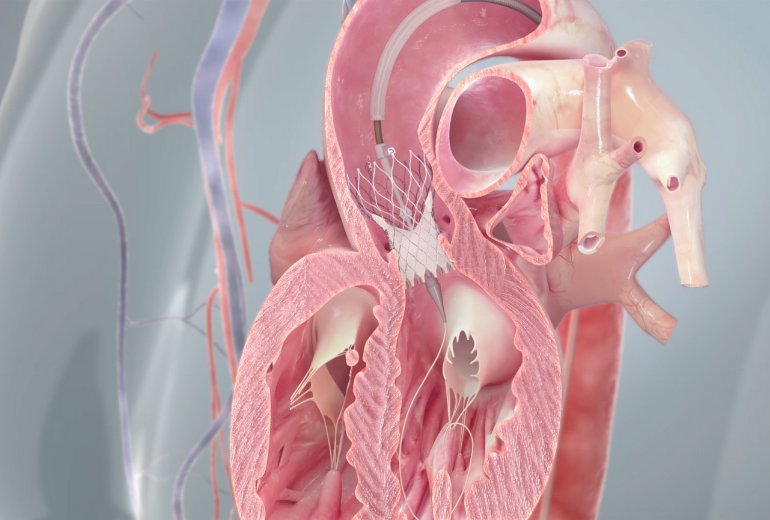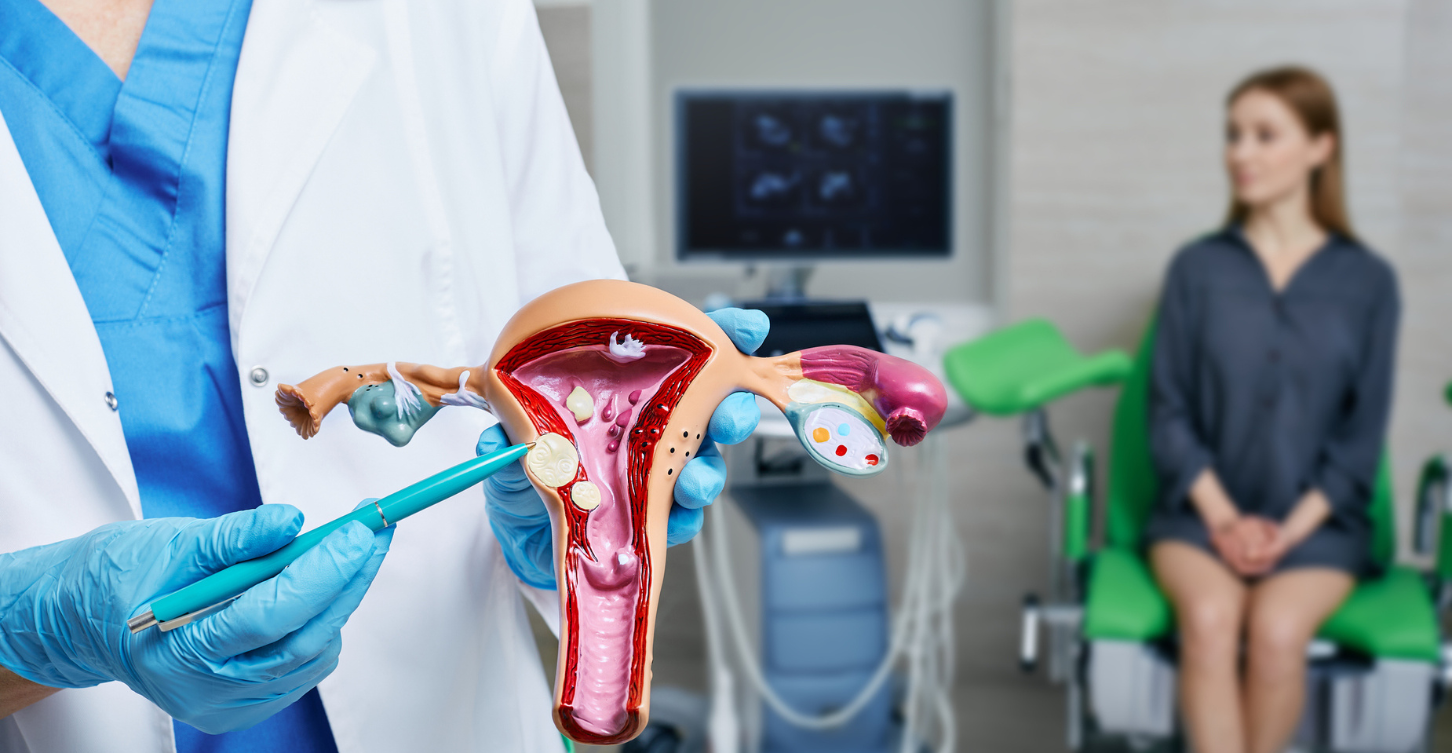Tips to Lower Your Risk of Developing Skin Cancer
July 12, 2022
By: Amit Jain, MD
Categories: Healthy Living
Skin cancer is the most common type of cancer in the United States and worldwide. An estimated 1 in 5 Americans will develop skin cancer in their lifetime, which translates to approximately 3.5 million diagnosed cases of skin cancer per year. May is Skin Cancer Awareness Month, and understanding how to best protect yourself from the sun is crucial for lowering your risk of developing skin cancer.
Skin Cancer Risk
There are two types of skin cancer:
- Melanoma
- Squamous cell and basal cell cancer
Repeated ultraviolet radiation exposure (UVA and UVB) is the biggest risk factor for squamous and basal cell cancers and causes two-thirds of melanoma cases. The risk tends to be higher in light-skinned individuals and redheads, as they are more sensitive to UV radiation. The risk can be either from natural or artificial sources of UV radiation, such as the sun or indoor tanning. Some patients with melanoma have an increased risk due to hereditary gene mutations.
Lowering Your Skin Cancer Risk
Many skin cancers can be prevented with proper skin protection from UV radiation, as shown by several scientific research studies. The simplest method for effective sun protection is to minimize exposure and time under direct sunlight.
The National Council on Skin Cancer Prevention recommends the following tips to limit exposure to UV radiation:
- Avoid sun burning and indoor tanning.
- Wear sun-protective clothing, including wide-brim hats and sunglasses.
- Choose to take Vitamin D through supplements, rather than from sunlight.
- Choose sunscreen with at least SPF 30 or higher and apply at least 15 minutes before being outside (and every 2 hours thereafter).
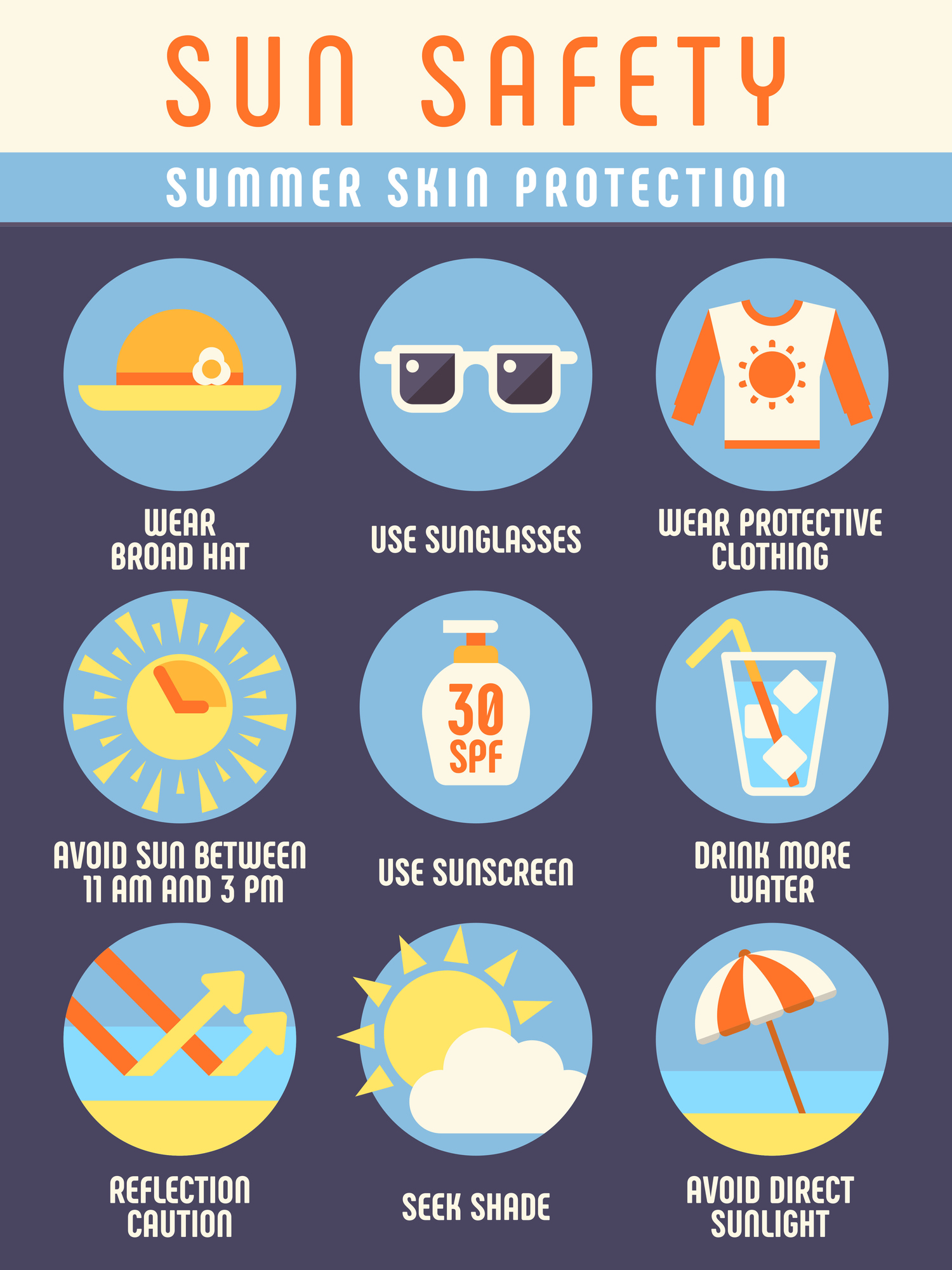
Sunscreens have filters that reflect or absorb UV radiation and protect your skin from the sun. The Sun Protective Factor (SPF) measures the sunscreen’s ability to protect against a sunburn reaction – the higher the SPF, the more protective it is. Some sunscreens only protect against UVB radiation, but since 2012, FDA issued regulations require a “broad spectrum” label for sunscreens that protect against both UVA and UVB radiation.
Sunscreen must be applied liberally, repeatedly and to all sun-exposed parts of the skin. Most people do not apply enough sunscreen to fully achieve the full SPF value, hence, the “teaspoon rule.”
Use six teaspoons of sunscreen each time you apply:
- One teaspoon to the face and neck
- One Teaspoon to the chest and abdomen
- One Teaspoon to the back
- One teaspoon to both arms
- Two teaspoons to both legs
Photoprotective clothing is also important, and the degree of protection is measured by Ultraviolet Protection Factor, or UPF. Again, the higher than UPF, the better the protection.
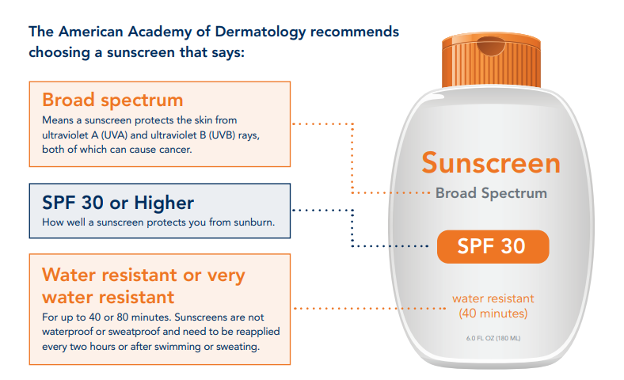
Detecting and Treating Skin Cancer
The good news is that most skin cancers (more than 99%) can be removed and cured if detected early. Melanoma is the deadliest and has the highest tendency to spread and come back – and may require more specialized surgery. However, it can also be cured in most patients when caught early.
When examining yourself for skin cancer, just remember the alphabet. This is the “ABCDE” of skin cancer early-detection tips:
- Asymmetry (one side of the spot does not match the other)
- Border (shape is not uniform)
- Color (color variations)
- Diameter (size is larger than ¼ inch)
- Evolving (change in size, shape or color over time)
We recommend a once-a-month self-exam and annual visits to a dermatologist – especially if you are at higher risk for skin cancer based on your lifestyle. If you notice a suspicious skin spot, contact your dermatologist or primary care provider immediately. A dermatologist will confirm a diagnosis by getting a biopsy of the affected area.
If your provider does detect a skin cancer and you need oncology care, rest assured that Tallahassee Memorial HealthCare (TMH) is the region’s cancer leader, offering the most comprehensive and advanced cancer care, research, education and prevention services in the Big Bend. Our highly trained team of oncologists, hematologists and other medical specialists provide exceptional, compassionate and multidisciplinary cancer care, right here at home.
To learn more about our Cancer Center and oncology services, visit TMH.ORG/Cancer.
